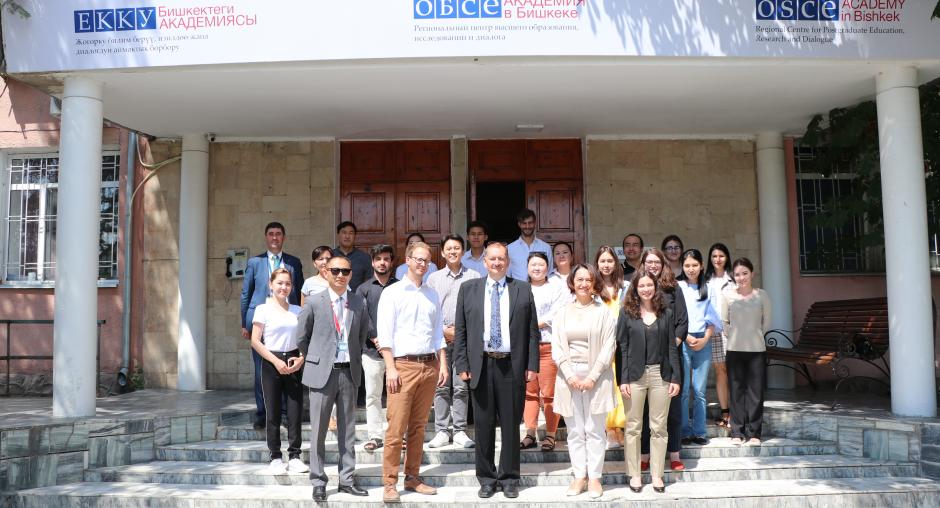Climate change and security focus of training organized by OSCE and adelphi in Bishkek

On 12 July 2022, students and young professionals from various academic disciplines and sectors took part in a training on Climate Change and Security in Central Asia in Bishkek. The Office of the Co-ordinator of OSCE Economic and Environmental Activities (OCEEA) and the Berlin-based think tank adelphi organized the event in partnership with the OSCE Academy and the OSCE Programme Office in Bishkek.
Throughout the training was stressed that climate change is one of the most pressing issues of the 21st century with implications for sustainable development, prosperity, security, and stability in the OSCE region and beyond. Raising awareness and harnessing youth potential is key to tackling it.
Alexey Rogov, Head of OSCE Programme Office in Bishkek, shared that the field operation is following closely the Kyrgyz Republic’s priorities on climate change, including its initiatives in promoting sustainable mountain development at the international level. He underlined the importance of the 2021 OSCE Ministerial Council Decision on climate change to strengthen co-operation in addressing the challenges posed by climate change. “We will continue to assist the Kyrgyz Republic in the implementation of this Decision and further enhance our work in the regions of Kyrgyzstan in partnership with youth, civil society, and the Aarhus Centres” he added.
Esra Buttanri, Senior Advisor at the OCEEA, drew attention to the OSCE’s project on climate change and security, which aims, amongst others, to support young people in stepping up their efforts and boosting their skills to address various challenges caused by climate change. “Today’s training also allows us to benefit and be inspired from the perspectives and innovative approaches of youth in our work as agents of change”, Buttanri said.
Lukas Rüttinger, Senior Advisor at adelphi, underlined that climate change is increasingly putting pressures on states and societies. “It compounds risk factors such as political instability, inequality, food insecurity, and economic difficulties that are important drivers of insecurity, tensions, and conflict,” he said.
Alexander Wolters, Director of the OSCE Academy, highlighted that the Academy promotes research into the impact of climate change on Central Asia and has set itself the goal to help increase the resilience of the region's people towards the effects of climate change. “Today’s training is very timely and provides a platform for students and young professional across the region to discuss, work together and learn about the best strategies forward", he added.
The participants were provided with in-depth knowledge of the potential security risks posed by climate change and had the opportunity to develop approaches to solve related problems in a dynamic and interactive environment.
This training was organized within the framework of the OSCE extra-budgetary project “Strengthening Responses to Security Risks from Climate Change in South-Eastern Europe, Eastern Europe, the South Caucasus and Central Asia funded by Andorra, Austria, Czech Republic, Finland, France, Germany, Italy, Liechtenstein, Luxembourg, Norway, Poland, Sweden, and United States.
